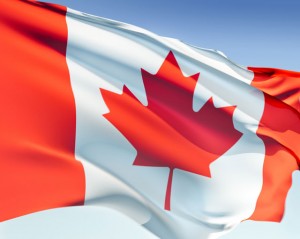 Remembrance Day summons powerful images. Sacrifice for a greater good; submission for country and neighbours; conviction that we can fight evil and win.
Remembrance Day summons powerful images. Sacrifice for a greater good; submission for country and neighbours; conviction that we can fight evil and win.
Governments earned public trust between 1939-45. Even though they were tiny by today’s measure, governments ran a near impossible war effort. We won, and our government enjoyed two decades of unchallenged support.
If government can coordinate a whole country to win a war, surely it can do other good things? Small, empowered bureaucracies proved they could move raw materials, have industry make combat boots and parachutes, and send thousands into battle.
Nothing establishes credibility like success. Victory crushed any debate about whether government could act as a force for good with civilian problems. Armed with public support, governments set to work on popular social issues.
More work required a bigger crew, and government mushroomed to the task. No one thought to ask whether we had won the war because government was small, not in spite of it.
Devotion is often blind. Once lost, it requires another war to regain. Government waste, scandals and personal failures have obliterated public trust today.
In recent focus groups with baby boomers, a large public affairs firm found people expected government bungling. Boomers got angry about many things, but shrugged with familiarity at government scandals.
What is Government Good At?
D Savoie, from the University of Moncton, reminds us that public servants used to work for the public good in What Is Government Good At?: A Canadian Answer. [Credit Savoie for the next few paragraphs.] Public servants served ends that markets could not in areas where markets could not reach.
The public service was supposed to be best at “equality, efficiency, merit, fairness and justice.” This remained unquestioned, until government got big.
Government has tried to do more and more and now struggles in multiple sectors to implement anything. It tries to balance stakeholders and ends up disappointing.
Modern public service manages instead of setting policy. Margaret Thatcher started a trend to reshape bureaucracy. She wanted efficiency and accountability but forgot that bureaucrats do not have levers to move performance. The public service wants to look and sound like the private sector, but it cannot drive change.
The public sector has no bottom line, no market to generate revenues, no one to report to, and public servants never lose their job unless they embarrass their superiors.
Since the 1980s, government has been trying to invent a bottom line and somehow create market forces within the public sector. This has caused a shift to performance-based accountability, new oversight bodies and new program evaluation efforts. It has made bureaucracy today far more top heavy.
Most public servants now work in the central office as opposed to regional offices delivering services to citizens. Bureaucracy slowly sinks under bloated reporting burdens.
Accountability and transparency make the public sector keenly attuned to blame. Blame get shifted to the top, to those with increased authority. Senior public servants spend most of their time managing political issues, public impression and voter support.
Those with little power or ambition get assigned to implementation. The New Public Management, or Managerialism, creates change masquerading as improvement (Rod Rhodes).
All this happens while media and parliament hold people accountable “as they see fit and on their own terms.”
Government should prove what it’s good at and get out of the rest.
Government Cannot Implement
It can measure, reward and punish, but government needs doctors to implement its fancy designs. That’s why bureaucracy will always resent doctors. It can turn nursing into a technical profession where nurses are judged by whether they ticked all the boxes on their 6 pages of progress notes. But government cannot understand why it fails with medicine.
The last 3 years of cuts have forced a generation of doctors to consider the limitations of government. Normally apolitical physicians must now consider politics as a force impacting patients’ health. And doctors are not impressed.
For the first time since the start of Medicare, many doctors have started to imagine healthcare under an Australian or European system. It reminds some people about the birth of Medicare, something we all hoped to forget.

I note that Candian doctors are not imagining healthcare under an American system. Wise!
Nice post, Shawn.
Michel
Great point. Thanks Michel!
An interesting take on the role of the Government Shawn – as a former civil servant and also someone who spent time as an “outsider” in the health care sector recruiting physicians and nurses, I agree with your observation that yes, the Canadian health care sector is suffering from bureaucratic inefficiencies however, I also observe that this is partly the blame of the numerous “Colleges” that self-regulate the various health care professions, as well as the convoluted and inequitable ways of licensing Medical professionals in Canada (currently each province has their own rules and their own College). A simple solution would be to have one licensing board across provinces but it would require health care delivery and regulation shifting to the Federal government.
Excellent point, Rob!
I see the regulatory colleges and the educational colleges as just more bureaucracy. On top of that, they exist to make sure no one else can exist in their place. Medical professionals never like talking about the monopoly we hold or support on medical licences. I suppose a national body could replace all the provincial ones. However, I doubt the other provinces would like to live under the likes of the Ontario regulatory regime.
Thanks so much for taking time to read and comment!
Best,
Shawn